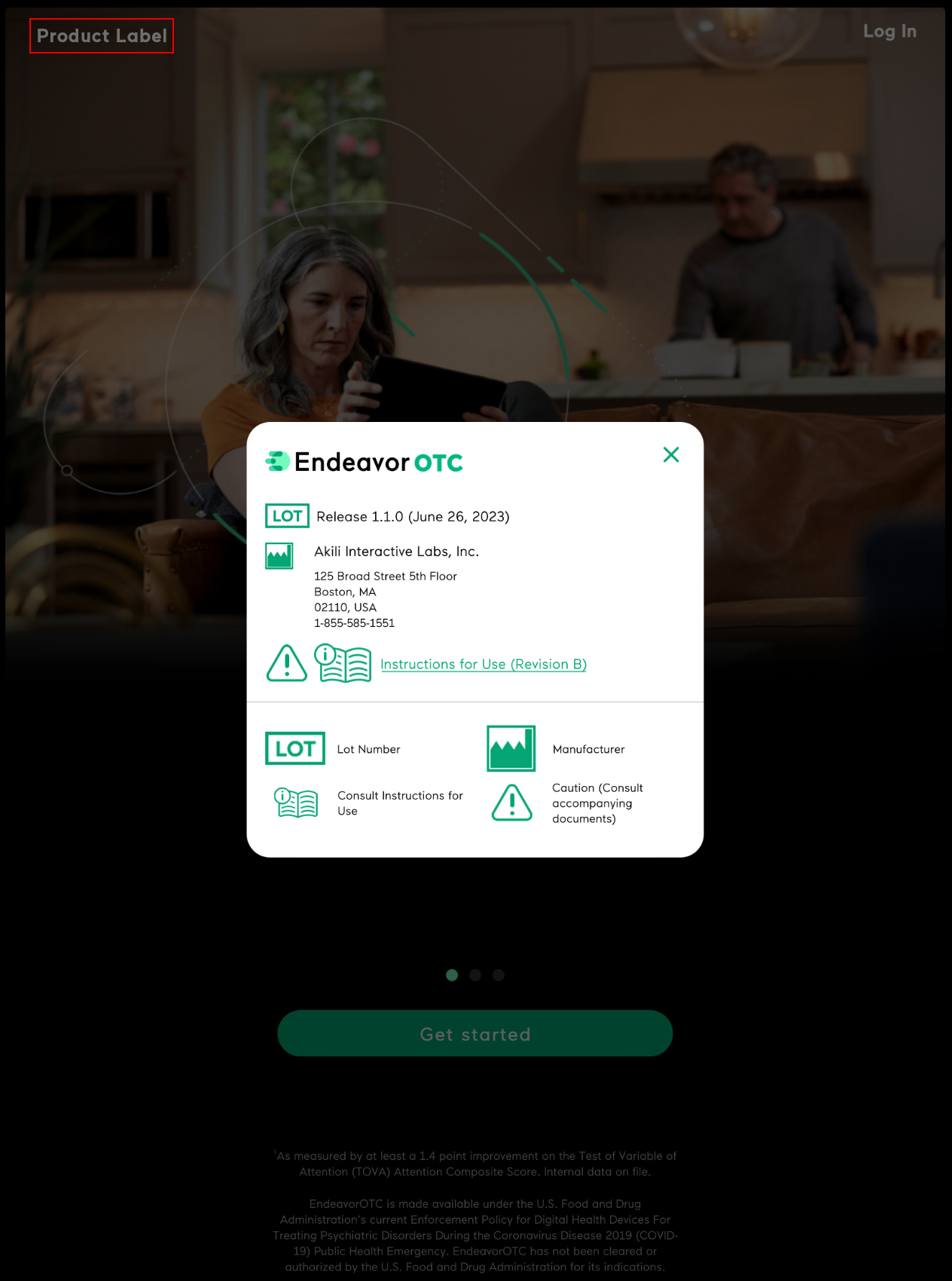How Does EndeavorOTC Affect Your Everyday ADHD Symptoms? An Interview with the Experts

A common question for users and people considering EndeavorOTC, is how does this translate to my day-to-day life? Am I just getting better at the treatment or does my progress transfer to the real world? We sat down with the clinical experts, Chief Medical Officer, Dr. Scott Kollins, and Director of Medical and Scientific Affairs, Caitlin Stamatis, PhD. to ask your common questions and learn more about the research supporting the treatment benefits that extend outside of the treatment itself.
What should I expect to happen to my ADHD symptoms after using EndeavorOTC?
What are some more examples of day-to-day life changes people saw from the study?
Caitlin Stamatis: In addition to improvements in our primary outcome of objective measures in attention, two outcomes that really strike me are changes in ADHD symptoms, looking at a clinician-rated scale, and changes in quality of life measure: the functional impairment that people come in saying they just don’t have control over the things in their life that they want to be managing.
People also saw significant improvements in things like carelessness, distractibility, difficulty sustaining attention, staying organized, or interrupting– just all these core symptoms that really influence and drive impairment and push people to go in and seek treatment. Endeavor seems to move the needle on all of those.1
Scott Kollins: At a high level, one thing that’s really important to keep in mind if we think about measuring success, or measuring outcomes, for any kind of treatment, is that there are core symptoms of a condition. In the case of ADHD, there’s inattention, impulsivity, and hyperactivity, but there are also impairments. Impairments are really important because the impairments are the way that those symptoms interact with a person’s life. That means they’re going to be different for everybody.
CS: A statistic that really stands out to me is even with getting at all these diffuse, different ways that ADHD can impact someone’s life, 73% of people in our clinical trial reported improvement in quality of life after 6 weeks of the treatment.
SK: And almost 50% met a threshold we set ahead of time, an established clinically meaningful improvement in their ADHD quality of life ratings following treatment (a change in 8 points or more on the ADHD quality of life measure).
Author: One thing you said, Scott, really stuck out to me. Sometimes in the world of social media, we can think we relate to lots of ADHD symptoms, but you can’t meet criteria for ADHD if you don’t have those impairments alongside the symptoms.
What happens when I stop using EndeavorOTC? How long do the results last?
SK: I will say the short answer is we’re still learning more about this. If you think about it from a theoretical perspective, here we are strengthening a circuit in your brain that should not only happen when you’re playing and then go away when you’re done playing.
From the theoretical perspective, that should have some durability. Now the question is how long does that durability last? We’ve done one study in kids ages 8 to 14 and what we found in that study was when people did the treatment for a month and then stopped, but then did the treatment again, you saw continued improvements even after that second month. But even during that entire month when they were not using the treatment, they didn’t return back to baseline. So they improved, they maintained their gains, and then we would expect to see them continue to improve with more use of the treatment.
We want to continue to gather data on this. One of the ways we do this is we invite everybody that downloads and gets started with the product to join a product registry where we can measure these things over time. It’s a paid research opportunity for anybody that’s interested. That is one of the ways that we will try to characterize this over time.
Author: Thank you both for your time. It’s super exciting to hear that EndeavorOTC is not just making you better at the treatment itself, but clinical trials support that individuals see changes not only in attention, but also in functional areas of their life. And there is some promising data to suggest these results last! How long they last is still being studied, but I found it illuminating that unlike medication that means you go back to your original baseline when you don’t take it, it sounds like even after a month break of treatment, children did not revert back to their original baseline measurements of attention.
About the Author
-
Jessica E. Flannery, PhD is the Associate Director of Clinical Science at Akili. She is a clinical licensed psychologist, an ADHD-Certified Clinical Services Provider (ADHD-CCSP), and a developmental social neuroscientist. She has published over 50 peer-reviewed articles, received prestigious fellowships and awards and is a prior TEDx speaker.

